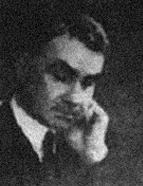

Born in the municipality of Sardoal (district of Santarém) on 15 January 1868, he was a member of the ‘Catholic Action’ — one of the patrons of the creation of the Academic Centre for Christian Democracy in Coimbra (CADC de Coimbra) — and professor at the Faculdade de Medicina [School of Medicine] of the University of Coimbra (FMUC), specialising in the areas of hygiene and ‘social medicine’. He was also a guest lecturer at the Faculdade de Letras [School of Arts and Humanities] and the Higher Normal School of the University of Coimbra (FLUC and ENSUC). Between 1933 and 1938 (the year he retired), he held the position of Director-General of School Health at the Ministry of Public Instruction — since 1936, the Ministry of National Education. He died on 8 April 1956.
After attending the School of Natural Philosophy at the University of Coimbra with distinction — later the Faculdade de Ciências [School of Sciences] and today the Faculdade de Ciências e Tecnologia [School of Science and Technology] — João Serras e Silva enrolled at FMUC (1891), where he graduated in 1896. After obtaining his bachelor’s and doctoral degrees, he successfully applied for a teaching position at that School of the University of Coimbra in 1898. He defended his dissertations entitled “The heredity of syphilis”, “Alcoholism” and “The high altitude climate and pulmonary tuberculosis”. In 1895, he collaborated with Augusto Rocha — professor at FMUC and Director of Coimbra Médica — and António Leite de Faria in organising the 1st National Tuberculosis Congress in Coimbra.
A defender of João Franco in the final phase of the Constitutional Monarchy and of Sidónio Pais during the First Republic, João Serras e Silva was part of the support base for the Military Dictatorship and the Estado Novo, having been a member of the Corporate Chamber. He was active in various organisations, including the Central Committee of the Conferences of St. Vincent de Paul, the Association of Portuguese Catholic Doctors and the National Crusade of D. Nuno Álvares Pereira. He was one of the mentors of the generation of leaders of the CADC in Coimbra, symbolised by Manuel Gonçalves Cerejeira and António de Oliveira Salazar.
This work is financed by national funds through FCT - Foundation for Science and Technology, I.P, in the scope of the projects UIDB/04311/2020 and UIDP/04311/2020.
